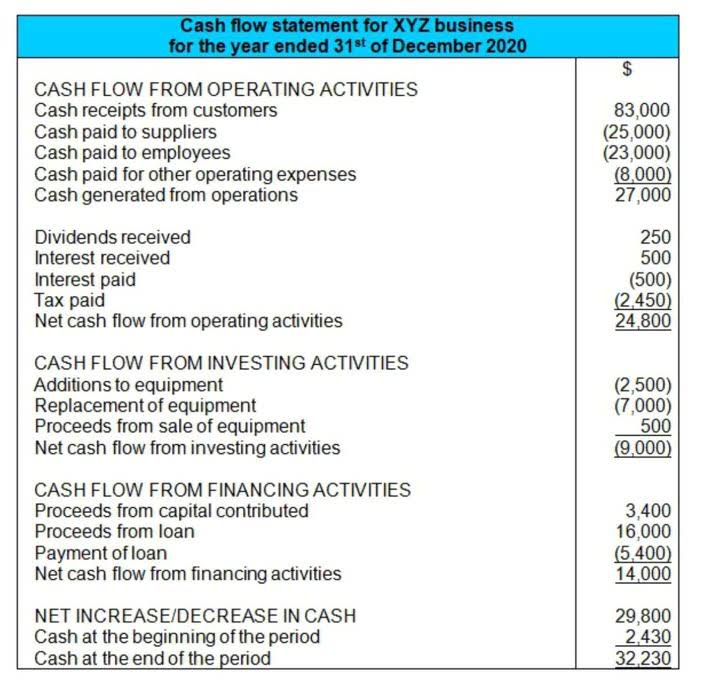What Is Independent Contractor?
Content
- Working As An Independent Contractor
- What Are Independent Contractors Role In The Future Of Business?
- What Are Common Examples Of Independent Contractors?
- When Should A Company Look To Hire An Independent Contractor?
- Additional Independent Contractor Rights Resources:
- The Basics Of Sales Commission Agreements
- What Benefits Can I Provide To Independent Contractors?

Instead, the employer is generally responsible for supplying these items. An employer must pay an employee by the hour or as a salaried person and offer them benefits as required under federal and state labor laws. Clients seldom reimburse independent contractors for expenses such as work clothes, What Is an Independent Contractor fuel, lunch, or meals. Contractors also don’t receive paid employment benefits unless they furnish a separate policy. In addition, independent contractors must be comfortable with filing their taxes quarterly with the IRS and paying for their own insurance, plus retirement savings.
This means that more than 75% of their income comes from the principal company. This designation also entails not having any employees and not subcontracting any of the work out to another individual. GoGlobal’s EOR services provide an alternative option for hiring ICs compliantly and efficiently. We can support your company in engaging talent in a new country, without having to set up a local entity or risk violating local employment regulations.
Working As An Independent Contractor
This is an all-too-common mistake the IRS finds employers making with independent contractors. If you need long-term work from the contractor, the DOL and the IRS will eventually wonder if you should have a regularly scheduled employee in that role. To help avoid this error, the IRS has developed the IRS 20 Factor Test – Independent Contractor or Employee? You can check your needs and reasoning for wanting an independent contractor with this 20-point test to determine whether you should hire an independent contractor or an employee.
- Being an independent contractor comes with a variety of benefits, including flexibility, autonomy and tax deductions for business expenses.
- They are not protected from employment discrimination by Title VII, nor are they entitled to leave under the Family Medical Leave Act.
- They tend to get paid for projects, they worry about their own taxes, and work when and where they want.
- Life as an independent contractor has some benefits, such as the ability to work from anywhere, at any time, for any client.
- If your company hires the services of an IC, you are usually not legally allowed to provide them with any benefits such as healthcare, paid time off, sick leave, paid maternity leave, etc.
- Each jurisdiction operates on different criteria but the goal is generally to establish how much control the company has over the IC.
This includes paid holidays, unemployment and incapacity benefits, as well as professional third-party liability insurance. Principal companies should take note of this exception, as France is one of the few countries that allows and mandates principal companies to provide ICs with certain benefits. In terms of taxes, there are often special requirements for both contractors and their clients.
What Are Independent Contractors Role In The Future Of Business?
And because compliance often comes at great expense, employers can significantly reduce their liability and increase their profit margin by hiring independent contractors rather than employees. Freelancers, independent contractors, and gig workers are all types of self-employed workers, which means all of them have to pay self-employment taxes , and none receive employee benefits or protections.
And by hiring independent contractors, an employer enjoys the greater ease and flexibility to expand and contract the workforce as demand rises and falls. Laws, which obligate employers to pay, directly or indirectly, for medical treatment or lost wages, or both, for employees who are injured while at work or who lose their job.
What Are Common Examples Of Independent Contractors?
Most employed individuals fall into the worker classification of an actual employee, which means that they perform work for a business and receive wages or a salary in return. Being an employee does have its perks, including employee benefits such as health care or a retirement plan, as well as workers’ compensation insurance for each and every employee who could get injured on the job. An independent contractor can be self-employed in any number of professions, offering their services to other businesses or individuals as a nonemployee. They’re usually responsible for their own payroll taxes, including Social Security taxes and Medicare taxes. An independent contractor contracts with an employer to do a particular piece of work. This working relationship is a flexible one that provides benefits to both the worker and the employer.
Again, the nature of the work will help define the relationship. When work is considered integral to the business, it is more likely that the person is an employee.
When Should A Company Look To Hire An Independent Contractor?
However, many provisions of the Labor Code and most sections of the IWC Wage Orders do not apply to public employees. (See, e.g., Johnson v. Arvin-Edison Water Storage District 174 Cal.App.4th 729.) AB 5 does not change that. Finally, the ABC test may not apply for certain occupations and contracting relationships. https://www.bookstime.com/ Below is a summary of the California Supreme Court’s explanation of how to apply the ABC test. The best thing to do is call your county clerk’s office to find out its procedures, requirements, and fees. First, you won’t be able to enforce any contract that you sign under an unregistered name.

Be sure to keep a copy of each contractor’s Form W-9 on file for your records. If youwork from home, you can save money on some of these expenses. Ork for someone else’s business and are subject to their control. Continuing education courses, training classes and university schooling are all tax-deductible expenses. Save money by comparing insurance quotes from multiple carriers. Occasionally, a company will want to include vetting and background checks in the onboarding process for sensitive roles, but it is rare.
Additional Independent Contractor Rights Resources:
However, an independent contractor answers to no one in terms of what work they are required to perform. If they don’t want to work with a particular client, they don’t have to. In fact, generally speaking, self-employed individuals may work more than company employees because they have to take care of many of their own business concerns. You might have noticed when you get a paycheck from an employer that you have deductions for Medicare and Social Security. These government programs are all paid for by employed individuals in the United States.

As an independent contractor, you aren’t afforded federal benefits. If something happens to you on the job and you can’t perform your duties, you may have to rely on your savings. You also likely won’t have access to unemployment benefits if your workflow is reduced. Most employees earn a consistent income, whereas independent contractors must constantly search for work to maintain a steady business. This means that you’re responsible for advertising, marketing and development. As an independent contractor, you can define all aspects of your business. As a result, you can complete your work as you see fit to some extent.
If the employer answers “Yes,” to these questions, they must classify the employee as an independent contractor. If they answer “No,” then they must reclassify the independent contractor as an employee. Violating the above-referenced rights can leave employers on the hook for expensive fines and penalties.
Although gig workers will be legally classified as independent contractors, they get their own category here because the nature of their work is different from traditional contractors. Employer misclassification of employees as independent contractors either inadvertently or to avoid taxation and regulation, is widespread.
The Basics Of Sales Commission Agreements
An independent contractor communicates directly with a manager for a project and submits a competitive bid to get hired. The information provided on this website does not constitute insurance advice. All content and materials are for general informational purposes only. Complete Insureon’s online application and contact one of our licensed insurance professionals to obtain advice for your specific business insurance needs. A person who works under a contract of employment but for service rather than a contract of service – the taxi driver is an independent contractor and not the employed chauffeur. An employer’s right to discharge a worker tends to show that the worker is an employee. An employee must obey an employer’s instructions in order to stay employed; an independent contractor can be fired only if the work result fails to meet the agreed-upon specifications.
Individuals classified as independent contractors are not considered employees of your business. Are there protections if a worker is retaliated against because the worker complains about being misclassified and losing out on employee rights like being paid overtime?
What Happens If An Independent Contractor Works Only For My Company?
Many catering, photography, videography, and floral services are offered by independent contractors. Companies are not bound to the legal requirements in their professional relationships with independent contractors like they are with employees. For instance, they are not required to provide any sick pay, maternity leave, or other similar benefits. ICs are sometimes called consultants, freelancers, self-employed and even entrepreneurs or business owners. Unlike an employee who works for one employer, ICs typically work for several different clients. They tackle specific jobs or projects that require special expertise. An independent contractor is an individual who may run their own business but also performs work for other businesses.
What Benefits Can I Provide To Independent Contractors?
For instance, some states license auto mechanics, barbers, massage therapists, and real estate agents. Ask your trade association or go to your state government’s website to see if you need a particular license. For more information, see Licenses & Permits for Your Business. If you use your full name in your business name, you don’t have to register it. For instance, many contractors who run small service businesses simply add a word or two after their full name to come up with a business name, such as Aidan Ray Editorial or Mike Russell Architectural Services.
